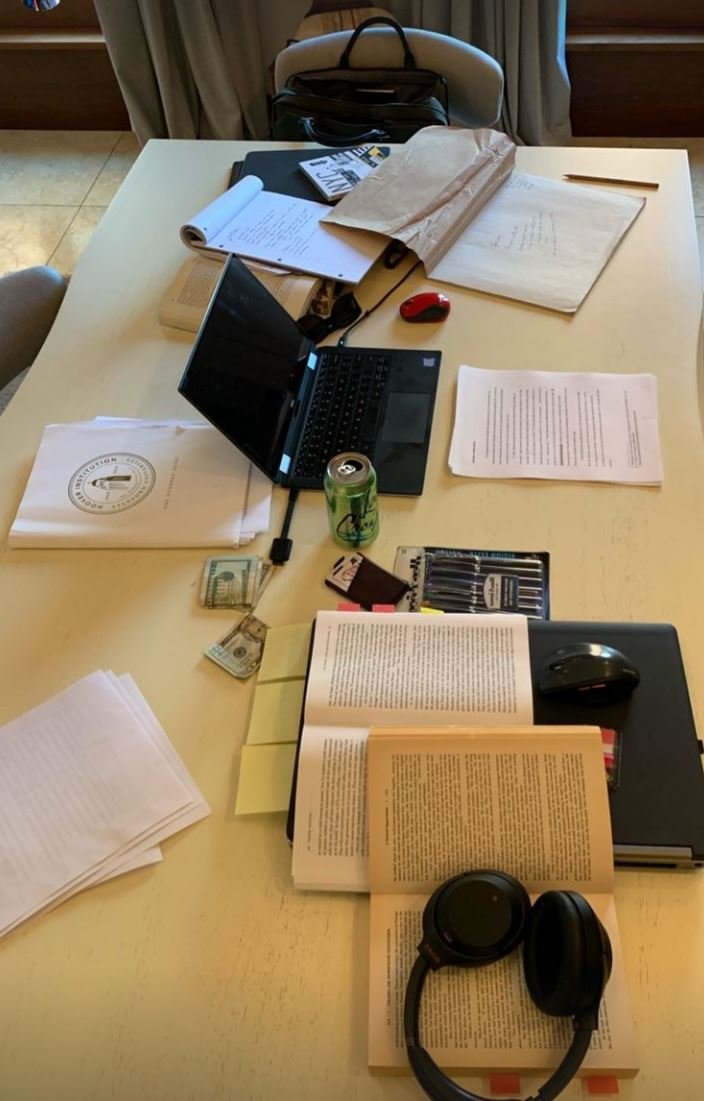 Anne and I were discussing the nature of research at lunch. Not clinical research, but the kind of research we need for the work we do. I have clear views about good research. I have benefitted from excellent research, and I have been weighed down by shoddy research. It’s like prep work for a meal. Done well it makes the meal. That’s why chefs devote attention to chopping vegetables.
Anne and I were discussing the nature of research at lunch. Not clinical research, but the kind of research we need for the work we do. I have clear views about good research. I have benefitted from excellent research, and I have been weighed down by shoddy research. It’s like prep work for a meal. Done well it makes the meal. That’s why chefs devote attention to chopping vegetables.The question is: Let’s imagine someone wanted to learn how “to do their own research” without going back to college. Where would they go to learn the habits of research? If there isn’t such a place, what should a resource include?
I should be clear that I am not asking about where a person would go to research a topic. I am asking where they would go to learn the habits of research. I am not asking for Joe Rogan and Nikki Minaj jokes. Save those for your closest friends. I am not asking for a hug.
When I posted this question on Twitter, a lot of people suggested going to the library. I couldn’t be a bigger fan of libraries, but the question is not “Where do you go to do a specific piece of research?” Also, as amazing as research librarians are, I’m not sure they have a lot of time to teach the habits of research, which is what I’m trying to figure out here. However, some people suggested there are seminars held at libraries for the purpose of teaching research, which is excellent to know.
I will post any good answers I get on this page. Some resources I’ve found useful over the years (off the top of my head; there are more):
https://www.thegreatcourses.com/courses/your-deceptive-mind-a-scientific-guide-to-critical-thinking-skills.
https://www.thegreatcourses.com/courses/the-philosopher-s-toolkit-how-to-be-the-most-rational-person-in-any-room
Think Again by Walter Sinnott-Armstrong and Think Again by Adam Grant
Post Truth by Lee Mcintyre
The Decision Book by Mikael Krogerus and Roman Tschappeler
The Constitution of Knowledge by Jonathan Rauch
I’d add True Enough: Learning to Live in a Post-Fact Society by Farhad Manhoo to your list.
https://www.goodreads.com/book/show/34507927
This has a good explanation of how memory works, which is essential to research and writing. They even explicitly make that connection and offer a method to apply , and it is very easy, satisfying and can be applied to any topic or level of research.
I use bibliographies and notes for a particular topic on an already published work, court records, diaries held by historical societies. In Massachusetts the secretary of state has custody of a lot of records and they have been digitized. I used them to learn about the naming of Thompson Island and who was David Tompson (without the ‘h’).
I am not sure if this answers your question but there is something about refining the curiosity into a strong question to focus your research. The real question allows the research to find the surprises.